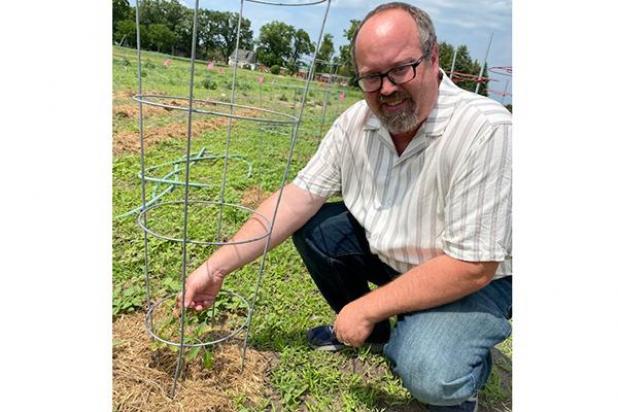
David Lott is a Horticulture Educator in the Nebraska Extension Office in North Platte. He serves a 16-county region in west central Nebraska including Chase and neighboring counties.
Basics for becoming an organic gardener
There’s nothing tastier than a fresh tomato off the vine or watching your garden grow into big, beautiful, high-yielding plants.
There are many benefits to planting a garden such as reducing stress and anxiety, motivating us to move and keep fit and encouraging healthy habits such as growing organic, tasty fruits or vegetables.
Gardening improves the quality of life because humans are attracted to green surroundings. Beautiful plants and flowers complement your home inside and out.
Caring for a vegetable garden can be very gratifying, and organically grown veggies will taste amazing!
The most important reason for planting an organic garden is that you know what is and what isn’t in your food.
Plus, growing vegetables, herbs and flowers organically means your garden becomes a beautiful haven for birds, bees and butterflies.
Growing an organic garden is easier than you might think, although it requires work and persistence to reap the benefits.
Basics to get started
There are some basics that are helpful to get started with your first organic garden or established gardeners wanting to go organic.
Choose a location that receives at least six to eight hours of sunlight each day. Most fruiting plants like tomatoes, peppers, cucumbers and melon need full sun to produce well.
Leafy greens like lettuce, kale and many herbs can tolerate partial sun of three hours or more per day.
Don’t plant your garden close to large trees and roots as they will steal nutrients and water from your vegetables.
Learn about your gardening zone so you know what you are able to grow and when to plant.
Nebraska is in zones four and five.
The next thing to decide is whether you will be planting in containers, raised beds or in-ground rows.
This decision is based on the quality of ground soil available or the right mixtures of soil for containers or raised beds. A little investigation would be required to make this decision.
David Lott is a multi-county horticulture extension educator, based in North Platte, Nebraska. He serves a 16-county region in west central Nebraska, including Chase and neighboring counties.
“Any of these options will work great in this area. The choice of one over the others depends on available space, available time to commit to gardening, how much gardening space that a gardener wants to manage and how much produce they want to raise and harvest,” said Lott.
Read the full article in our FREE Home Improvement section. Click here!
